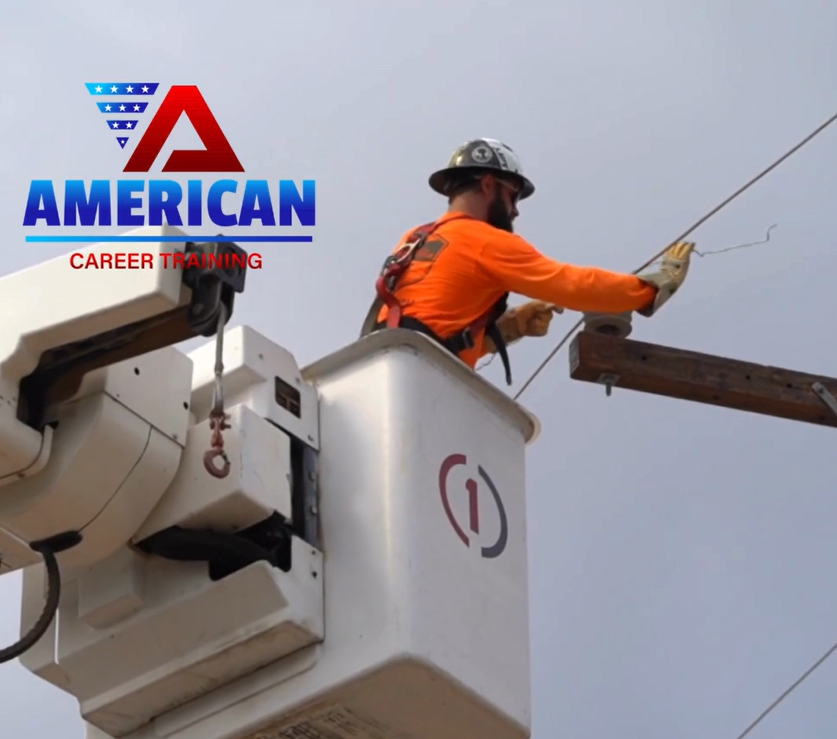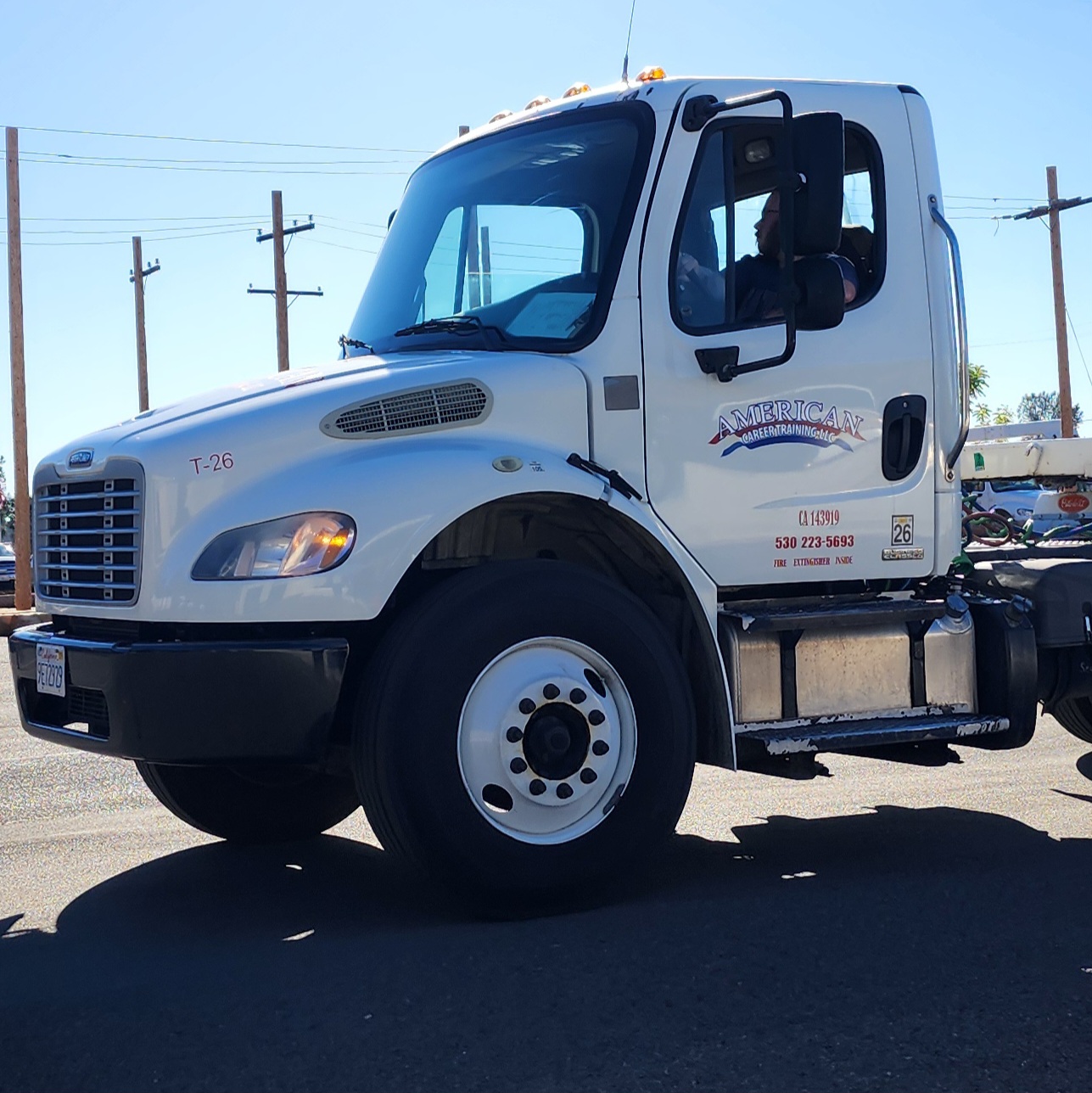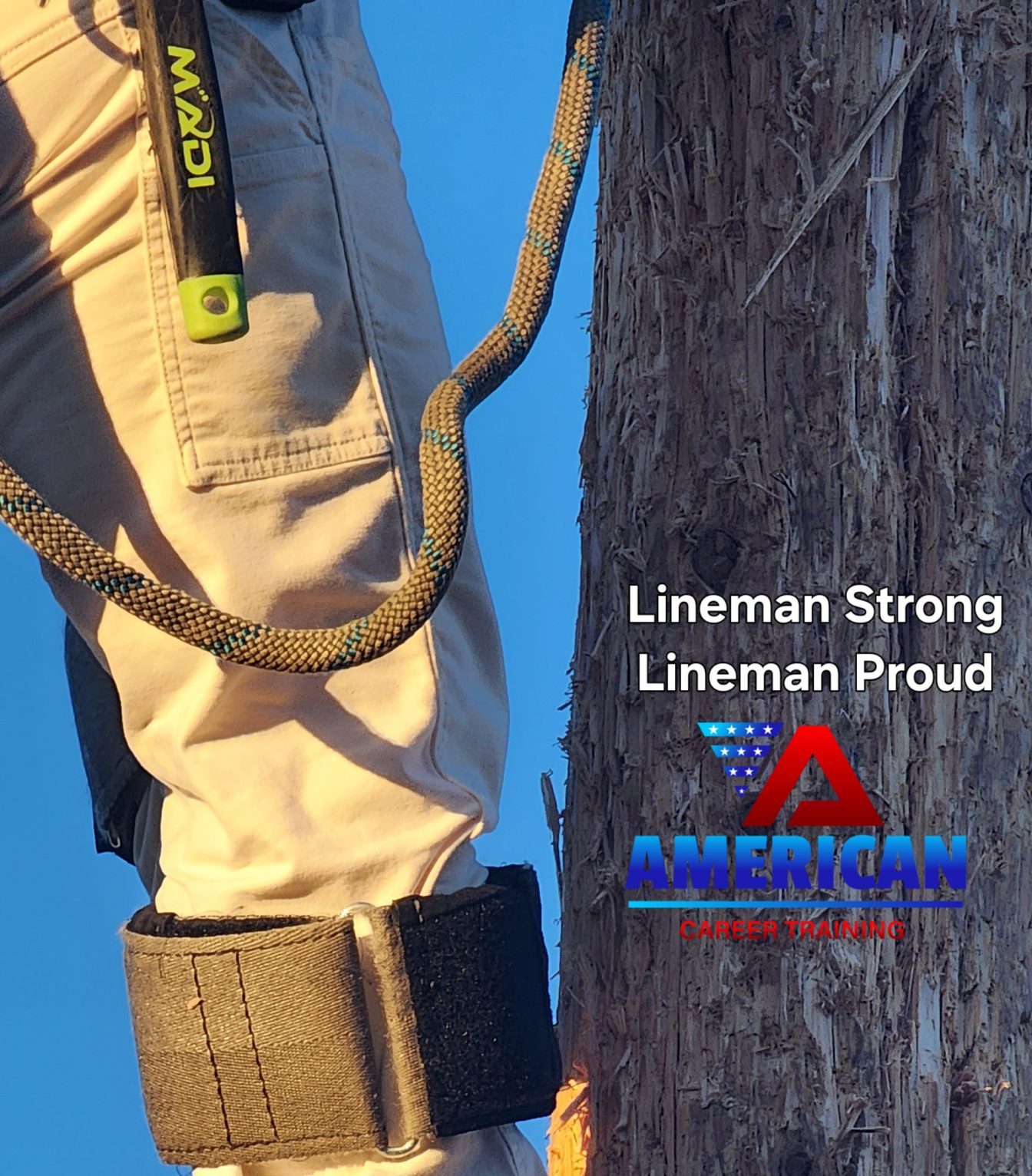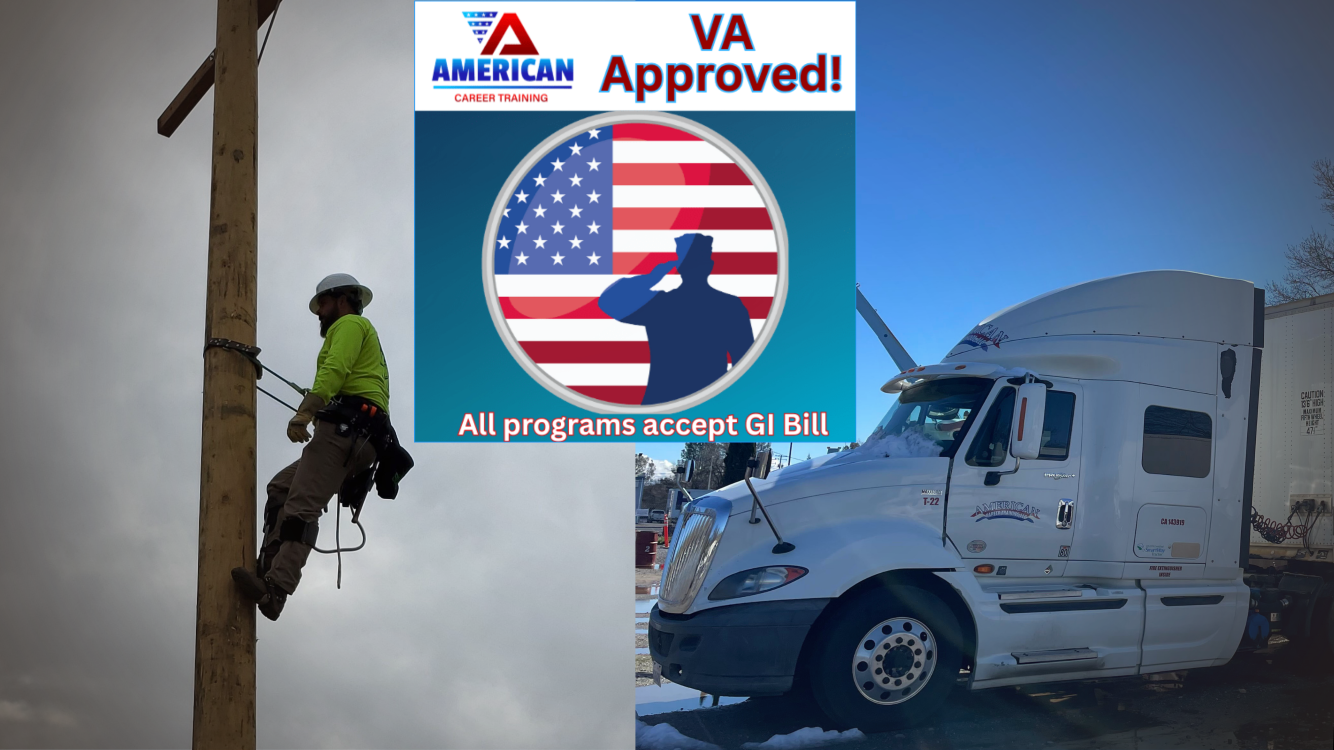Common Names for Lineman Work
The lineman trade goes by many different names depending on the employer, region, and specific focus area:
Power Line Technician – Often used by utility companies and emphasizes the technical aspects of working with electrical power systems.
Electrical Line Worker – A broad term that encompasses all types of electrical line installation and maintenance work.
Power Line Worker – Focuses specifically on electrical power transmission and distribution systems.
Utility Line Technician – Emphasizes work for public and private utility companies providing essential services.
Transmission Line Technician – Specializes in high-voltage transmission lines that carry electricity over long distances.
Distribution Line Technician – Focuses on the lower-voltage distribution systems that deliver power to homes and businesses.
Outside Line Technician – Distinguishes outdoor electrical work from indoor electrical work performed by traditional electricians.
Line Mechanic – An older term still used in some regions, emphasizing the mechanical aspects of line work.
Cable Splicer – Specializes in joining and repairing underground electrical cables.
Lineworker – A modern, inclusive term that’s becoming more common in the industry.
Journeyman Lineman – Refers to fully trained linemen who have completed their apprenticeships.
Apprentice Lineman – Students or new workers learning the trade through formal apprenticeship programs.
Telecommunications Variations
The telecommunications side of line work also has specific titles:

Telecommunications Line Installer – Installs and maintains phone, internet, and cable TV lines.
Cable Line Technician – Works specifically with cable television and internet infrastructure.
Fiber Optic Technician – Specializes in installing and maintaining fiber optic communication lines.
Outside Plant Technician – Maintains the outdoor infrastructure for telecommunications companies.
Why Choose The Lineman Trade?
In months, not years, lineman training offers distinct advantages that make it an attractive alternative to a 4-year college:
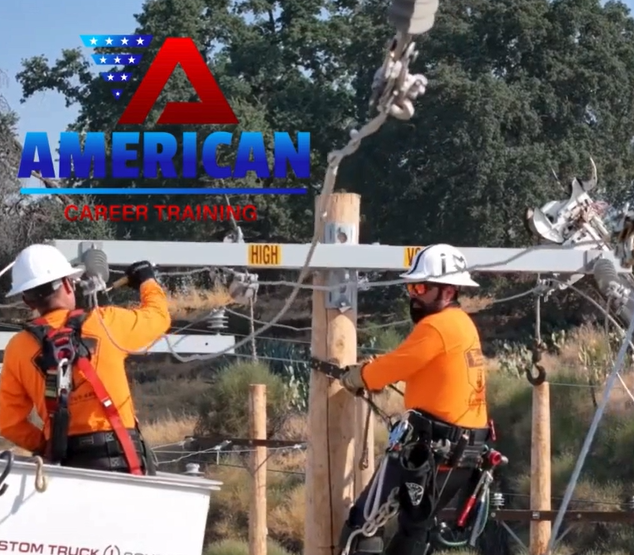
Immediate Earning Potential – Lineman apprentices start earning while they learn, unlike college students who accumulate debt. According to industry data, lineman wages range from $48,220 annually for entry-level positions to $119,920 for experienced professionals, with median wages of $85,420 annually – often exceeding the income of many college graduates.
Job Security – Electrical power infrastructure requires constant maintenance and expansion, making this an recession-proof career. The electrical grid isn’t going anywhere, and experienced linemen are always in demand.
Hands-On Work – For those who prefer working with their hands and solving real-world problems rather than sitting at a desk, lineman work provides physical and mental challenges.
Shorter Training Period – While college takes 4+ years, American Career Training’s Electrical Lineworker Programs can be completed in just 15 weeks (480 or 600 hours), followed by apprenticeship where you’re earning money.
Travel Opportunities – Storm restoration work and major projects often provide opportunities to travel and work in different regions, sometimes with premium pay.
Clear Career Progression – The path from apprentice to journeyman to supervisor or instructor is well-defined, with each level bringing increased responsibility and compensation.
The Value of Concentrated Class Sizes
Whether you’re interested in becoming a power line technician, electrical line worker, or any of the other specialized roles in this field, proper training is essential. The electrical power industry requires workers who understand:
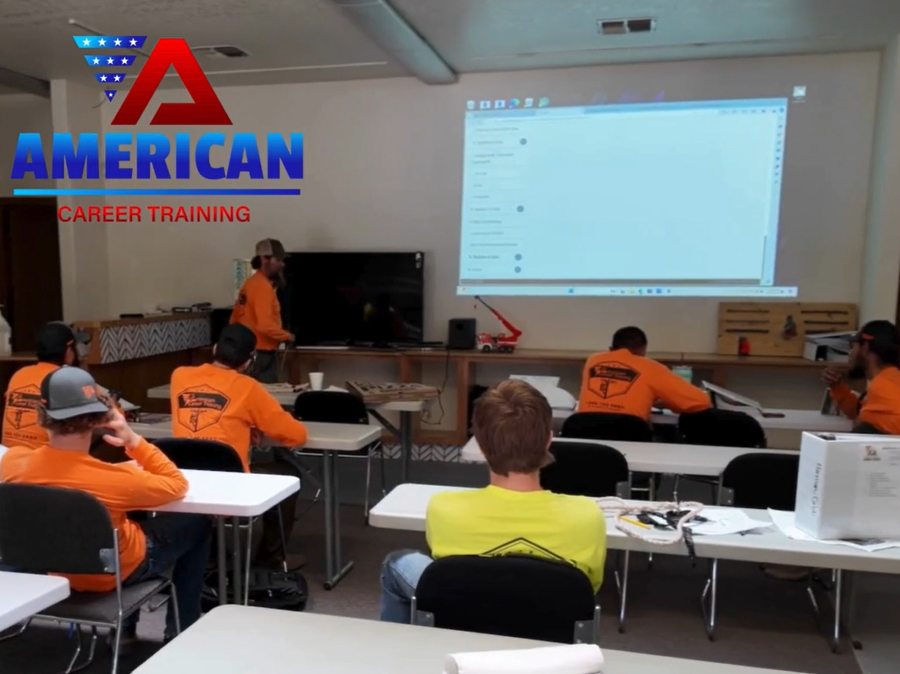
- Electrical theory and safety protocols
- Proper use of specialized equipment and tools
- Federal and state safety regulations (OSHA standards)
- Emergency response procedures
- Climbing techniques and fall protection
American Career Training specializes in lineman training provide hands-on experience with the actual equipment and scenarios you’ll encounter on the job. This practical training approach often proves more valuable than theoretical classroom learning for entering this field.
Growing Demand Across All Specialties
The Bureau of Labor Statistics projects strong growth for all types of line technician positions as:
- Aging electrical infrastructure requires updating and replacement
- Renewable energy projects need new transmission lines
- Population growth increases demand for electrical service
- Experienced linemen retire, creating openings for new workers
Professional Training at American Career Training
American Career Training offers comprehensive Electrical Lineworker Programs that prepare students for entry-level positions in all these specialized roles. Our programs include:
Two Program Options:
- 480-Hour Program (15 weeks, Monday-Thursday): $24,995 total cost
- 600-Hour Program (15 weeks, Monday-Friday): $25,995 total cost
Comprehensive Curriculum Covering:
- Classroom Training (120 hours): AC fundamentals, basic electricity, distribution line safety, transformer connections, high voltage safety, OSHA 10 ET&D, and First Aid/CPR
- Hands-On Skills Training: Pole climbing, bucket truck operation, digger derrick operation, crane training, rigging, and powerline clearing
- CDL Training Included: Vehicle inspections, driving skills, and preparation for Class A license exam
- Real Equipment Practice: Late model crane, digger derrick, bucket truck, and conventional tractors on our 4½ acre campus
Complete Tool Package Included:
Your program includes professional climbing tools, safety equipment, lineman’s pliers, hard hat, tool belt, climbing boots, and all necessary safety gear – everything needed to start your career as a power line technician, electrical line worker, or utility line technician.
Career Outcomes:
According to Bureau of Labor Statistics data included in our program materials, lineman wages range from $48,220 annually at entry level to $119,920 for experienced professionals, with median wages of $85,420 annually.
ACT NOW
The path to becoming a successful electrical line worker, power line technician, or any other lineman specialty begins with proper training:
- Meet Physical Requirements – Must be able to carry 50 pounds, climb ladders, and pass DOT physical
- Educational Prerequisites – High school diploma or equivalent required
- Professional Training – Complete comprehensive lineworker program
- Obtain CDL License – Essential for most lineman positions
- Job Placement Assistance – Connect with utility companies and contractors nationwide

